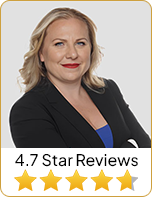
In this comment, Magdalena Cuprys, Esq. addresses and explains the business visa issues and visa alternatives in the U.S.
In the second article of her series of Instructional Articles, Florida Attorney Magdalena Cuprys comments on business visas for employment and possible alternatives.
Preliminary Considerations
Many visa applicants assume that once they complete the lengthy and expensive visa process and detailed interviews both at the U.S. Embassy and upon arrival in the U.S., they have accomplished their American Dream. If only that could be true.
Once they recover from the whole fingerprinting and interviewing stress, there is more to come. Whether you are a professional or a student, American bureaucracy will keep you busy for at least the first two months upon your arrival. You will quickly learn that one simply cannot function without the magic nine digits, known as a social security number (SSN). The social security system was designed to track income and earnings so that people could collect payments at a later point based on how long and how much they contributed over time. However, since the government assigns a unique number to each individual, other institutions like to use it for their own purposes. Not having the SSN will make it impossible to open a bank account, as well as to receive a paycheck! Finding a local social security office should be your top priority, especially since you will have to wait for weeks before you get your number in the mail. However, once it arrives, all the barriers and frustration will disappear, and you will be all set to start your new American life.
Alternatives To The H-1B Visa
Because H-1B work visas are limited (currently only 65,000 per year, plus 20,000 for holders of advanced U.S. degrees), it is important to keep in mind that there are alternatives that can help you bring needed foreign workers to the United States. You might want to consider some of the other nonimmigrant visa categories available that are not subject to this limitation. Here are some of the choices:
B-1 In Lieu Of H-1b
This visa allows employees of a foreign company to come to the United States to participate in a project or training program. Only for short-term assignments, this classification requires that the foreign national continue to be employed by the foreign company and return to the foreign company after the project in the United States has been completed. The visa holder cannot receive a salary or other remuneration from a U.S. source except for an expense allowance or reimbursement for incidental expenses.
Trainee Visas: J-1 And H-3
These visas allow foreign students and professionals to enter the United States for the purpose of training or developing their careers with a U.S.-based host organization for up to 18 months and 24 months of training, respectively.
Intracompany Transferee: L-1 Visa
One of the most useful tools available for international companies, the L1 visa category applies to foreign workers who work for a company with a parent, subsidiary, branch, or affiliate in the United States. These workers come to the United States temporarily to perform services either in a managerial or executive capacity (L-1A), or one which entails specialized knowledge (L-1B) for a parent, branch, subsidiary, or affiliate of the same employer that employs the professional abroad. The employee must have been employed abroad for the affiliated company on a full-time basis for at least one continuous year within the last three-year period to qualify. L-1 visas are issued up to a maximum initial period of three years and can be extended for up to seven years for L-1A managers and five years for L-1B specialized knowledge personnel.
Treaty Trader/Investor: E-1/2 Visas
These visas are available to nationals of certain countries that have trader and/or investor treaties with the United States. The E-1 Treaty Trader visa allows you to establish and run a U.S. business that has substantial trade with your home country. The E-2 Treaty Investor visa allows you to establish and run a business with a “substantial investment”
E visas are issued initially for two years and can be extended almost without limit.
Individuals Of Extraordinary Ability: O-1 Visa
The O-1 visa category is reserved for individuals of “extraordinary ability” in the sciences, arts, education, business, or athletics. To qualify as an individual of extraordinary ability, applicants must demonstrate that they possess “a level of expertise indicating that the person is one of a small percentage who has risen to the top of a field of endeavor.” Even though it sounds like only Nobel-prize winners can qualify, the truth is that the USCIS has dropped the standard, and the O category has become a useful alternative category. An initial O-1 petition can be filed for up to a three-year maximum employment period. Subsequent extensions may be for no more than one year at a time. There is no limit to the number of extensions possible.
J-1 Visas For Cultural Exchange
Under the Mutual Educational and Cultural Exchange Act of 1961, the U.S. Department of State’s Summer Work/Travel program provides “foreign postsecondary students an opportunity to become directly involved in the daily life of the people of the United States through travel and temporary work for a period of up to four months during their summer vacation.” Foreign students participating in the program are authorized to work anywhere in the United States. Typically, most students work in nonskilled service positions at businesses such as resorts, hotels, restaurants, and amusement parks. Hiring a foreign student through the Summer Work/Travel program has some distinct advantages.
Employment-Authorized Candidates
All the immigration-related matters are coordinated by organizations designated by the U.S. Department of State (sponsors) to administer exchange-visitor programs.
The immigration process and the costs associated with hiring foreign students intimidate many businesses. More often than not, it is the foreign student who initiates the process with a sponsor. It is also the student who pays the sponsors the fee to obtain the required documents to procure a J-1 visa for entry to the U.S.
Candidates Proficient In English
All prospective exchange visitor participants must possess sufficient proficiency in the English language to participate in their programs. (22 CFR §62.10(a)(2))
Qualified Candidates
All prospective exchange-visitor participants must be “bona fide postsecondary students actively pursuing degrees or full-time courses of study at accredited educational institutions, or as that status is defined by the foreign national’s home country educational system.” (22 CFR §62.32(b)(2))
Given this educational requirement, all program exchange participants will have completed a secondary-school education or its equivalent. Employers can be assured that candidates will have a certain level of education.
Candidates Selected And Qualified By Your Business
No prearranged employment before the foreign student enters the United States is required. Employers can make a hiring decision after the foreign student has arrived in the United States. Businesses will have the benefit of interviewing the candidate before extending an offer of employment. This will assure that the employment relationship will meet the needs of both the employer and the employee.
Cultural Exchange
A foreign student could contribute wonderful cultural influences to a business. Likewise, the opportunity that an employer gives a foreign student to gain an insight into American business and culture is an experience of a lifetime.
Think beyond the traditional sources of seasonal employees. Participating in the Summer Work/Travel program may be just the thing a business needs to turn its next busy season into a financially and culturally rewarding experience.

Attorney Magdalena Cuprys is a seasoned immigration lawyer based in Orlando and Coral Gables, Florida. With three languages under her belt and years of legal experience working with immigrants of all kinds, she brings considerable experience and insight to the field and works hard to explain immigration concepts, empower future citizens, and keep current and prospective immigrants up to date on US immigration law.
Connect with her firm, Serving Immigrants, to stay updated on the latest developments in United States immigration law and gain valuable insights needed to navigate the challenging legal landscape of immigration in Florida.
Call Us Now To Get Your Case Reviewed (305) 924-1133